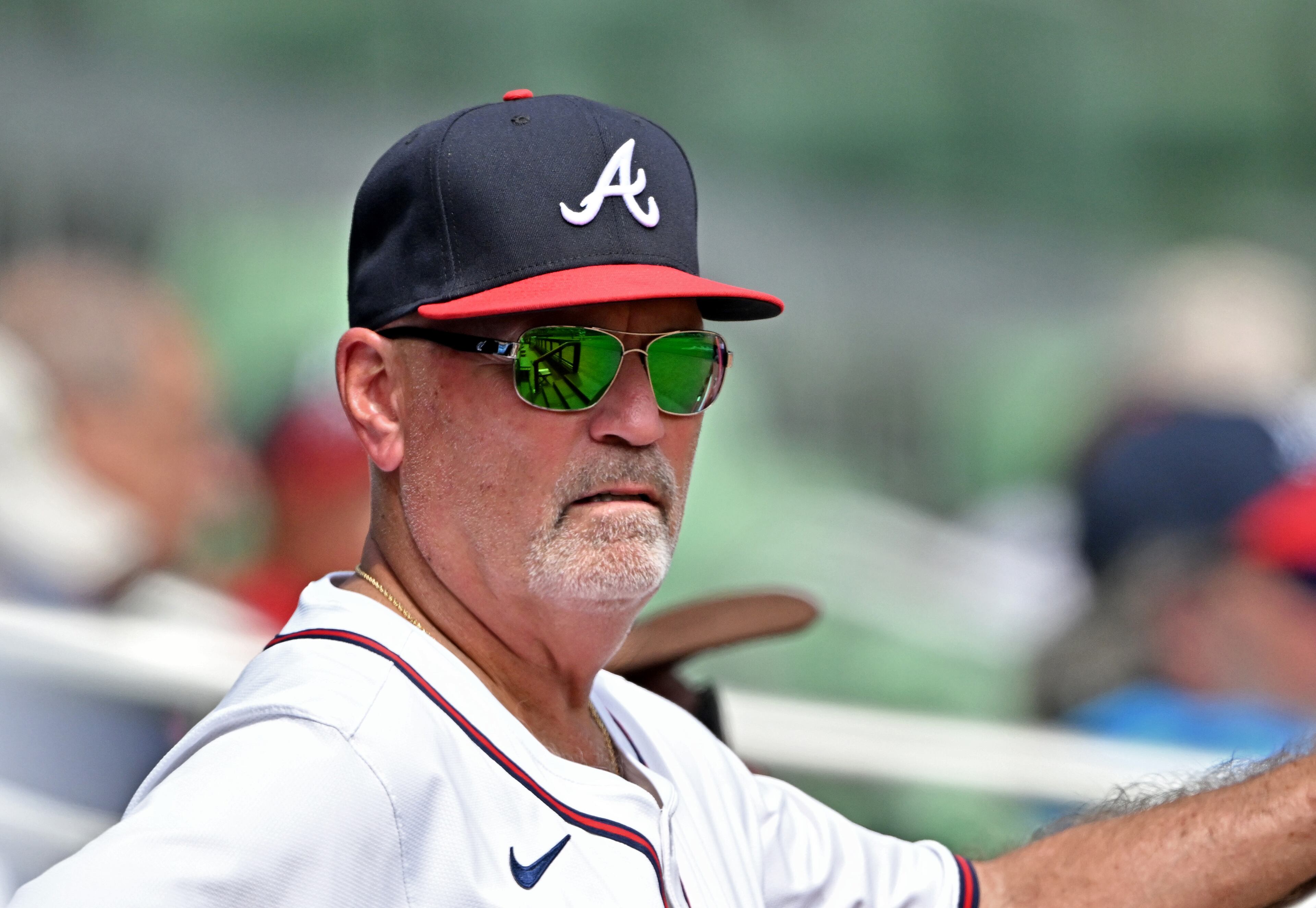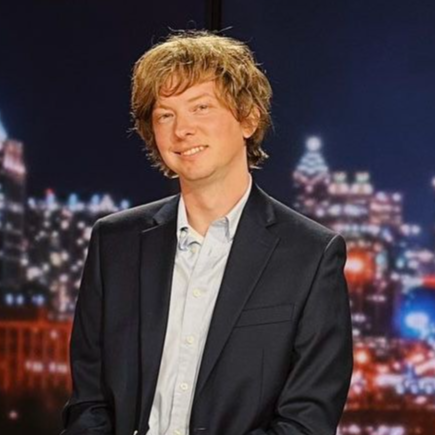A salute to Brian Snitker, who took remarkable path in becoming Braves lifer

By his own admission, Brian Snitker never thought he would manage a single major league game. His undeterred passion willed him without the promise of payoff. There were no guarantees, especially contractually. Spend enough time in the minor leagues and ascension seems stuff of fantasy.
As years went by, Snitker’s attitude swung from ambitious youngster to accepting the status quo as a blessing. He continued in baseball because when one truly loves something, it yields unlimited fuel.
During this time, absence became normal. Snitker was away from his family for weeks and months. He lived so many moments, both big and small, through voices on the phone. He saw only three innings of his son Troy’s high school career. It required every bit of effort to make his daughter Erin’s graduation. His wife, Ronnie, often was navigating alone.
There weren’t any hors d’oeuvres in his minor-league lifestyle. But there were myriad late nights on the bus. There were flat tires and breakdowns that threw travel plans awry. There were countless uncomfortable slumbers. There was a phone call from Ronnie distraught because cockroaches had crawled on young Erin, forcing an in-season move to a different apartment.
Back in those days, Snitker never could’ve foreseen the past decade of division titles, a Manager of the Year award, multiple stints on the All-Star coaching staff and a World Series title.
And now his 49-season trek with the Braves enters its final phase.
The Braves celebrated Snitker on Wednesday, when he retired as manager after a prosperous tenure from May 2016 until now — earning seven playoff appearances, six division titles and the 2021 World Series championship.
“Honestly, I never thought I’d manage one day in the major leagues, let alone 10 years,” Snitker said in an emotional reflection Wednesday. “I never thought I’d hoist a trophy or be around a group of guys that makes this so special.”
Snitker still had the fire to manage, indicating he might consider returning in 2026, but the Braves didn’t seem to offer that opportunity. He made peace knowing that if you wait until you’re ready to retire, you might just keep waiting.
And so Snitker is remaining with the franchise in an advisory role. He’ll still have an impact on the franchise, so his career isn’t complete — but his improbable ascension is.

Snitker joined the Braves in 1977 as a minor league catcher. Executive Hank Aaron released him four years later, immediately offering him a coaching role. Snitker signed his first contract in a bathroom at then-DeKalb College, he recalled.
Indeed, Hall of Famers Aaron and Bobby Cox are why Snitker was positioned to be celebrated this week. They were the two most instrumental individuals in his career whom he became happy to call mentors and friends.
“I was blessed to be raised by Hall of Famers and people who did it right,” he said. “And in turn, I was blessed to watch the development and rise of Hall of Famers.”
Snitker coached for decades across different affiliates, finally becoming a third base coach on Cox’s staff. He served the role from 2007 until 2013, after which he was demoted. Snitker began managing Triple-A Gwinnett in 2014 and assumed the interim manager role for the rebuilding Braves after they’d dismissed Fredi Gonzalez early in the 2016 season.
Snitker led the team to a winning record in the second half, including winning 20 of the final 30 games, so the Braves removed the interim tag around a week before his 61st birthday.
Even so, the team’s previous front office leadership was going to replace Snitker after a 72-win campaign in 2017 before the front office imploded because of an MLB investigation into numerous misdeeds.
The subsequent housecleaning led to the Braves hiring current president of baseball operations Alex Anthopoulos, who met Snitker for the first time at his introductory presser. Anthopoulos had an open mind and was eager to build a relationship with Snitker.
It became one of the great developments in franchise history.
Snitker won the National League’s Manager of the Year in 2018 after guiding the Braves to an unexpected division title. The team rewarded him with a two-year extension, then only the second multiyear deal of his career (the other courtesy of then-general manager Cox in the 1980s).
That was the first of six consecutive division crowns and seven consecutive postseason berths. The unlikely 2021 title will reign forever in Braves history. Snitker oversaw a woeful team that had lost numerous players, including mega talent Ronald Acuña Jr., to injuries. But the team never fell behind enough to consider surrendering. Anthopoulos gave him a patchwork outfield at the trade deadline that proved glorious.

And a team that didn’t surpass the .500 mark until August became one of MLB’s best stories.
“The reason I’m wearing this (World Series) ring is certainly because of (Snitker),” Anthopoulos said Wednesday, fighting off tears.
The Snitker-Anthopoulos combo was a perfect mix, one that knew how to best utilize every tool at one’s disposal while valuing the intangibles that create a clubhouse culture. The Braves had star power over this run, but they also won on the margins, maximizing so many journeymen during their seven-year playoff stretch.
The title ensured it as the second greatest run seen in Atlanta professional sports, topped only by Cox’s 14 consecutive division titles — which included the 1995 World Series championship.
“I felt a responsibility to come in and carry on what Bobby left here,” Snitker said.
Like Cox, Snitker was frequently applauded for how he handled his players. Many were front and center for his goodbye news conference — including infielders Ozzie Albies and Austin Riley, whom Snitker saw turn from rookies to champions over their prime years.
Snitker addressed them several times while answering questions. The recurring theme was relationships. He most valued being around people he admired and with whom he enjoyed working.
Asked what makes him most proud over the past decade, Snitker gushed about the organizational culture — particularly what his players helped create in the clubhouse. He assured that his successor will be entering a welcomed situation.
Snitker, meanwhile, will be in the background. It will be different at first, but he possesses freedom in his new role. He’ll be at spring training. He’ll be around Truist Park plenty. He’ll be a consultant for Anthopoulos and the new manager, should they seek his counsel.
But most important, for the first time in his adult life, he’ll have time. He’ll get to be at his grandkids’ games. He’ll get to vacation in April, June or August. He has his same dedication to the Braves, but he won’t need to sacrifice any longer.
His story isn’t one about paying dues, necessarily. If that were the case, he’s owed far more back than the game could ever return him. It’s more a testament to how the most powerful feeling — love — helped him pave a borderline impossible path to reach his profession’s pinnacle.
And now he can enjoy the rewards: more in-person time than phone calls; walks in which lineup construction won’t seep into his mind; sleep without concern for the injured list. And he’s still getting his baseball fix, too.
After 49 years, Snitker can relax a bit more. He can be proud to know his journey resulted in him becoming one of the most integral figures in Braves history — and he bettered more lives than he’ll ever know along the way.



